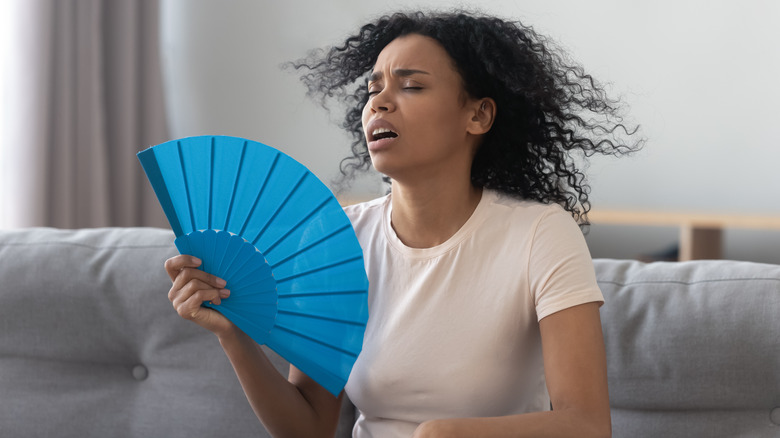When Are You The Most Likely To Get A Heat Stroke?
Whether you live in a hot climate or summer's on the way, staying safe in the sun's strong rays is vital due to the risk of heat-related illnesses. According to the Centers for Disease Control and Prevention (CDC), the most serious heat-related illness is heat stroke, which happens when the body can't regulate its temperature. The average body temperature is 98.6 degrees Fahrenheit, but with heat stroke, the body's temperature increases several degrees — 106 degrees Fahrenheit or higher — in as quickly as 10-15 minutes. If left untreated, a heat stroke can result in health issues, like a permanent disability or possible death.
There are many different symptoms of a heat stroke, but there is one symptom that may appear first: fainting. WebMD reports in addition to fainting, symptoms of a heat stroke include muscle weakness, dizziness, nausea, vomiting, rapid or shallow breathing, headache, and red or hot skin. Despite being hot, another symptom of heat stroke is the absence of sweating, along with behavior changes, such as confusion.
Causes of heat stroke
Because the body's core temperature is hot, the body tries to cool off through sweating and pushing heat to the skin, according to Johns Hopkins Medicine. However, this becomes a problem because the body does not sweat during a heat stroke. Heat stroke is caused by being in a hot environment, like the sun, playing rigorous sports or activities, or simply being in high humidity. The body's central nervous system begins to shut down and stops producing sweat as the core temperature rises to life-threatening levels. If the body can't sweat enough to cool down, this can cause a heat stroke.
Certain people are at a greater risk of having a heat stroke. According to the Mayo Clinic, people whose nervous system isn't fully developed yet or is beginning to decline, like young children or adults over the age of 65, have a higher risk of heat stroke. Additionally, certain medications interfere with how hydrated the body stays, meaning you're more likely to become dehydrated and experience a heat stroke when in a hot environment. To prevent a heat stroke, stay cool with air conditioning when possible, drink plenty of water, and wear loose-fitting clothes.

